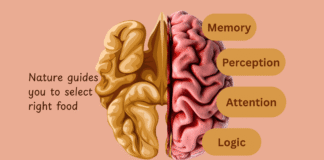Serotonin, a neurotransmitter often referred to as the “feel-good chemical,” plays a pivotal role in regulating mood, sleep, appetite, and overall well-being. While its functions in the brain are well-known, serotonin’s relationship with diet, vitamins, and daily activities is often overlooked. This blog post explores the connection between serotonin and sleep and how you can naturally enhance serotonin production and optimize your mood and sleep through a combination of nutrition, lifestyle, and an understanding of biochemistry.
Understanding Serotonin: The Basics
Serotonin is synthesized in the brain and gut, but its primary influence lies in the central nervous system. Here, it regulates mood, circadian rhythms, and appetite. The key to serotonin production lies in the amino acid tryptophan, an essential dietary nutrient. However, various factors determine how effectively your body can use tryptophan to produce serotonin, making diet and vitamin intake crucial.
The Tryptophan Connection: How Foods Influence Serotonin
Tryptophan is the precursor to serotonin. This essential amino acid cannot be synthesized by the body and must be obtained from food sources. Foods such as turkey, eggs, cheese, nuts, and seeds are often praised as tryptophan-rich. However, the pathway from tryptophan to serotonin isn’t as straightforward as it seems.
Why Carbohydrates Matter More Than Proteins
Contrary to popular belief, a high-protein diet doesn’t directly increase serotonin levels. Here’s why:
The Competition Effect: Proteins contain other large neutral amino acids (LNAA) like tyrosine, phenylalanine, and leucine, which compete with tryptophan for transport into the brain.
Insulin’s Role: When you consume carbohydrates, insulin is released, reducing the concentration of competing amino acids in the bloodstream. This enables tryptophan to cross the blood-brain barrier more effectively.
Thus, a carbohydrate-rich, protein-low diet facilitates serotonin synthesis, making foods like oatmeal, bananas, and rice excellent choices for boosting serotonin.
Timing and Food Choices:
Interestingly, serotonin-producing neurons can influence your food choices. Studies show that:
A carbohydrate-rich snack can lead to a reduced preference for carbs at the next meal.
Breakfast composition impacts lunch choices, highlighting how serotonin actively guides your meal decisions.
Understanding these patterns can help you structure meals to maintain balanced serotonin levels throughout the day.
The Biochemical Dance: Vitamins and Serotonin Synthesis
Serotonin synthesis is a multistep process involving various cofactors, enzymes, and vitamins. These nutrients act as catalysts, ensuring the smooth conversion of tryptophan into serotonin. Let’s delve deeper into the vitamins that play essential roles.
Vitamin B9, B6, and B12: The Serotonin Support System
Vitamin B6
Vitamin B6 (pyridoxine) is essential for the enzymatic conversion of 5-hydroxytryptophan (5-HTP) into serotonin. Without adequate levels of B6, serotonin synthesis slows down, leading to mood disturbances and sleep issues.
Vitamin B9 (Folate)
Folate is critical for synthesizing tetrahydrobiopterin (BH4), a cofactor required by tryptophan hydroxylase, the enzyme that initiates serotonin production. Dietary sources of folate include leafy greens, legumes, and fortified cereals.
Vitamin B12 (Cobalamin)
B12 works in tandem with folate in one-carbon metabolism, a process that ensures the recycling of BH4 and supports serotonin production. Deficiencies in B12 can lead to depression, cognitive issues, and even sleep disorders.
The One-Carbon Metabolism Pathway
In one-carbon metabolism, folate and B12 interact to regenerate methionine from homocysteine. Methionine then contributes to methylation reactions crucial for serotonin synthesis. A deficiency in any of these vitamins can disrupt this cycle, leading to reduced serotonin levels.
Vitamin B3 (Niacin): The Dual Role of Tryptophan
Tryptophan doesn’t only produce serotonin—it’s also a precursor for vitamin B3 (niacin). When the body lacks niacin, it prioritizes converting tryptophan into B3 rather than serotonin. This can lead to symptoms of niacin deficiency, such as:
Depression
Insomnia
Fatigue
To prevent this, ensure your diet includes niacin-rich foods like poultry, peanuts, and mushrooms.
The Vitamin D Connection: Regulating Sleep and Mood
Vitamin D, often called the “sunshine vitamin,” has profound effects on serotonin production and sleep regulation. Recent discoveries show that both active and inactive forms of vitamin D follow a diurnal pattern, influencing mood and cognition during the day and promoting restful sleep at night.
Daytime Regulation
During the day, active vitamin D (1,25(OH)2D) increases serotonin synthesis in the brain while reducing it in the pineal gland. This ensures optimal mood, focus, and productivity.
Nighttime Transition
As evening approaches, inactive vitamin D levels drop, allowing serotonin in the pineal gland to convert into melatonin, the sleep hormone. This cyclical process underscores the importance of maintaining adequate vitamin D levels for mental and physical well-being.
Serotonin Deficiency: Symptoms and Risks
Low serotonin levels can manifest in various ways, including:
Mood Disorders: Depression, anxiety, and irritability.
Sleep Problems: Insomnia or disrupted sleep cycles.
Appetite Changes: Cravings for sugary or carbohydrate-rich foods.
Cognitive Impairments: Difficulty concentrating or processing information.
Risk factors for serotonin deficiency include poor diet, vitamin deficiencies, chronic stress, and lack of sunlight exposure.
Boosting Serotonin Naturally: A Comprehensive Guide
Here’s how you can optimize serotonin levels through diet, lifestyle, and supplementation:
Here’s how you can optimize serotonin levels through diet, lifestyle, and supplementation:
1. Diet
Carbohydrate-Rich Meals:
Include foods like whole grains, sweet potatoes, and fruits in your meals.
Vitamin-Rich Foods:
Incorporate leafy greens, fish, eggs, and fortified cereals to meet your vitamin B6, B9, and B12 needs.
Niacin Sources:
Add poultry, tuna, and peanuts to your diet to prevent tryptophan diversion.
2. Sunlight Exposure
Spend at least 15-20 minutes outdoors daily to boost vitamin D levels. Consider supplementation during winter months or in areas with limited sunlight.

3. Regular Exercise
Physical activity increases serotonin release in the brain, improving mood and promoting better sleep.
4. Stress Management
Practices like yoga, meditation, and deep breathing can reduce cortisol levels, allowing serotonin pathways to function optimally.
5. Supplements
If dietary changes are insufficient, consult a healthcare professional about supplements like 5-HTP, vitamin B-complex, or vitamin D.
Conclusion
Serotonin is more than just a neurotransmitter—it’s a cornerstone of mental and physical health. By understanding the interplay between diet, vitamins, and lifestyle, you can take proactive steps to enhance serotonin production. Whether it’s tweaking your meals, spending more time in the sun, or managing stress, these small changes can significantly impact your mood, cognition, and sleep quality.
Start prioritizing serotonin today, and experience the transformative power of this incredible neurotransmitter in your life.




